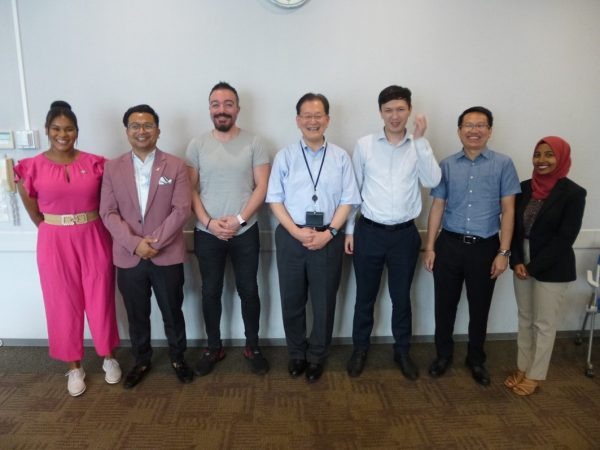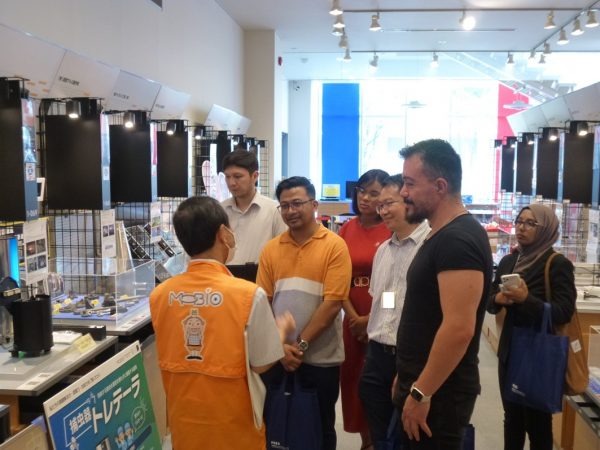
Schedule
June 28 ~ July 25, 2023 (Remote: June 28 ~ July 11, Japan visit: July 12 ~ July 25)
Country / Member
- Dominican Republic
- Lao People's Democratic Republic
- Maldives
- Nepal
- Uzbekistan
- Turkey
Target
For Government Officials and Business Leaders from Developing Countries
Participants
6 members from government authorities in various countries whose work is related to the promotion and development of small-medium enterprises
In this course, measures taken for the development of small-medium enterprises by the government ministries, regional authorities, organizations, enterprises, etc. were introduced. By sharing examples from participating nations, the goal was to draft solutions for selected problems each participant’s nation faced.
Schedule
June 28 ~ July 25, 2023 (Remote: June 28 ~ July 11, Japan visit: July 12 ~ July 25)
Course Leader
Mr. Takumi Hirai, Associate Professor, Mukogawa Women’s University
Client Organization
JICA Kansai
SDGs
Persons in Charge
YAMAUCHI, ARAKI, FUNAMI
Instructor
[Remote]
HIRAI Takumi, Associate Professor, Mukogawa Women’s University
The Small and Medium Enterprise Agency
Organization for Small & Medium Enterprises and Regional Innovation
Japan Finance Corporation
[In Japan]
HIRAI Takumi, Associate Professor, Mukogawa Women’s University
Rekishi Kaido Promotional Council
Hyogo Prefecture Department of Labor and Industry
Hyogo Prefectural Institute of Technology
Credit Guarantee Corporation of Hyogo-ken
Osaka Business Development Agency MOBIO – Business Dept.
Kinki Industrial Co., Ltd.
Kobe Industrial Promotion Foundation
H.A.G.S.
Heartoss Food Creates
FUKUDA Naoyoshi (Japan Small and Medium Enterprise Management Consultant Association, Advisor)
NAGAI Shunji, (Daiei Consulting, Representative Director)
The Japan Training Program Resumes After a Hiatus of Several Years
Due to the effects of the spread of COVID-19, until last year, the course’s complete schedule was conducted online and on-demand; in other words, a remote training course. However, on this occasion the course was held in a hybrid manner; the first-half was conducted as a remote training course and in the second-half participants had their training in Japan.
For the remote training course held prior to coming to Japan, in prior study of on-demand study materials and on-line sessions, the participants received an input of information in order to have an outline of Japanese small-medium size enterprise promotion. It is believed that this helped the participants to understand the program conducted after arriving in Japan.
After a lapse of a few years in training courses being held in Japan, participants were able to visit supporting agencies and enterprises to actually see and hear things and exchange opinions. Participants asked various questions on many occasions during their lectures and at locations they visited.
If the course had been held online, this animated exchange would probably not have occurred. We realized that the amount and quality of information gained from actual exchange is very different. The participants’ motivation was high, and they presented issues related to their country, and after reviewing the lectures, they presented action plans for each of their countries in the midst of active discussions. Participants also presented advice, etc. to other participants. We could clearly see the benefits of face-to-face format training through visits to Japan.

